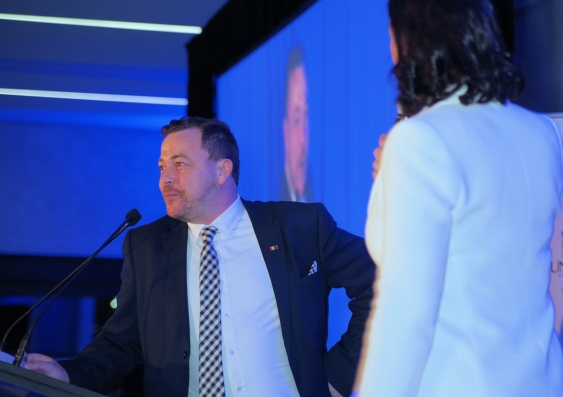UNSW partners with Pride in Sport
The landscape of sport is changing rapidly.
Once the domain of traditional masculinity and intended solely for those who could thrive in a grueling and competitive environment, the sport is now becoming more inclusive and expanding its target audience.
Within UNSW, the way sport is perceived is also changing.
The launch of the updated UNSW 2025 Sport Strategy in 2021 outlined the vision for UNSW Sport to provide the best and most comprehensive collegiate sport experience in Australia.
Mark Wright, UNSW Director of Sport and Local Communities, knows that inclusivity is a key cornerstone of the way sport is delivered.
“Sport, active recreation and physical activity have the ability to build communities, foster a strong sense of belonging and celebrate culture,” he said.
As part of this renewed focus, UNSW has partnered with Pride in Sport – a national non-profit sports integration program specifically designed to help sports organizations at all levels integrate staff, athletes, volunteers and spectators of diverse genders and sexualities.
This includes the use of the Pride in Sport Index, which allows organizations to set benchmarks and measure their progress year-on-year, track progress and identify areas for improvement.
At the recent UNSW Blues and Sport Awards Dinner, Pride in Sport Project Officer Ben Cork presented a plaque recognizing the partnership to UNSW Vice Chancellor and President Attila Brungs.
Center inclusion in university sports
Mr Cork was delighted to attend the event and welcome UNSW to Pride in Sport.
“I know from my own life experience that college is a hugely formative time and a time when people’s sexuality and gender expression comes out,” he said at the event.
“When people talk about ‘discovering their sexuality,’ it sounds like Dora the Explorer.
“Unfortunately, the reality is that it can be more like Jurassic Park.”
Mr Cork highlighted the worrying statistic that same-sex attracted and gender-matched people are three times more likely to be diagnosed with mental illness than the general population.
“We know the tremendous benefits that all people derive from being involved in sport,” he said.
“Benefits related to mental health, physical health, community, opportunity and connection.
“But LGBTQ+ people have a troubled history with organized sport — for many, high school sport was unsettling at best and traumatic at worst.
“The uniforms and locker rooms that come with the sport can be another barrier to participation, particularly for trans and gender-biased athletes, and the occasional homophobia that still persists in many teams is uninviting.”

Pride in Sport Project Officer Ben Cork is interviewed by MC Stephanie Brantz at the UNSW Blues and Sport Awards. Photo: UNSW Sports
Pride in Sport supports sport organizations across the country in breaking down these barriers to LGBTIQ+ participation and making sport a more welcoming and inclusive space.
Participation in the Pride in Sport Index will enable UNSW Sport not only to assess its own practice, but also to determine what constitutes good practice and compare its initiatives to other sport organizations.
The partnership with Pride in Sport will also provide extensive support, resources, networking opportunities, training, guidance and advice to improve LGBTIQ+ inclusion across UNSW’s sporting environments.
Growth and leadership for Pride in Sport and UNSW Sport
UNSW is proud to become a member of Pride in Sport and work has already begun to improve inclusion and opportunities for LGBTIQ+ people in sport across the university.
Mr. Cork is excited about the journey the two organizations are embarking on together.
“It’s really inspiring that UNSW has made this decision to grow in this space,” he said.
“And not only grow, but lead.
“It’s going to produce much better outcomes for so many students, it’s going to create stronger and more resilient teams.
“It will ensure you have the best athletes representing UNSW, no matter who they love.”
Read more: Active Women: UNSW’s ‘first of its kind’ strategy wins international recognition